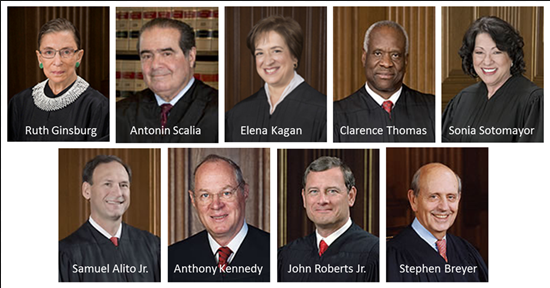
WASHINGTON, D.C. – Details are outlined below from the Nov. 16, 2015 U.S. Supreme Court decision to deny a Freedom of Information Act petition request by New Hampshire Right to Life, against Planned Parenthood of Northern New England.
The NH Right to Life group was seeking all documentation from PPNNE and the U.S. Department of Health and Human Services with regard to a 2011 federal grant awarded to PPNNE by HHS, after questioning whether some of that grant money was used to subsidize abortion.
Both sides reacted to the Supreme Court decision.
The following statement was issued by Planned Parenthood of Northern New England Vice President for Public Policy Jennifer Frizzell:
“Planned Parenthood of Northern New England understands that certain private information regarding our personnel, financial matters and internal medical protocols is exempt from public disclosure under the federal Freedom of Information Act, an interpretation that was shared by two federal courts and affirmed by the decision of the US Supreme Court. This case was yet another attempt by New Hampshire Right to Life and national anti-abortion groups to gain access to private and sensitive documents to use in their efforts to ban access to abortion and to intimidate patients and health care providers who seek and provide reproductive health care. We are pleased that these efforts were rejected by our nation’s highest court.” – Jennifer Frizzell
A statement was also issued by Jane Cormier, President of NH Right to Life:
“We would have been thrilled if the U.S. Supreme Court had taken on our case. NHRTL has been very concerned with the lack of transparency within the Obama administration. Despite the fact the NH Executive Council voted down the funding of PPNNE in 2011, US Health and Human Services chose to fund Planned Parenthood without going through proper state approval or even follow federal regulations requiring competitive bidding. All attempts to obtain full transparency with regard to this federal non-competitive grant have been rejected. NHRTL believed it was time the taxpayer of NH receive all the facts regarding the spending of their tax dollars.” – Jane Cormier
You can review the history of the petition here.
A summary of the decision to deny the petition was posted on the Supreme Court of the United States blog on Nov. 16, included below.
Over the dissent of two Justices, the Supreme Court refused to clarify a privacy clause in the Freedom of Information Act that protects commercial information that private organizations are required to share with the federal government. That is Exemption 4, which the Court has never interpreted, according to the dissenting Justices.
The Court’s denial of review of New Hampshire Right to Life v. Department of Health & Human Services thwarted an attempt by an anti-abortion group to get access to internal papers of Planned Parenthood that had been sent to the government in 2011 to support a grant of federal money for family planning projects in New Hampshire. The Court did not explain its order.
The dispute arose over papers describing the medical standards and guidelines that Planned Parenthood’s facilities follow, along with its fee schedule for services.
Under Title X of the Public Health Service Act, the federal government makes grants to public or non-profit private entities to pay for voluntary family planning projects. Title X bars any grants to a program that offers abortion as a method of family planning.
Prior to 2011, in New Hampshire, the federal government granted funds to the state government, which passed along some of the money to Planned Parenthood facilities. That year, state officials decided to stop accepting such grants, saying they were concerned that taxpayer funds were being used to “subsidize abortions.” It could not find a sufficient number of providers, so it returned funds to Washington.
The Department of Health and Human Services decided in 2011 to make grants on a sole-source basis to Planned Parenthood for a period of sixteen months. It required the provider to submit internal files on its policies and procedures. Planned Parenthood did so.
Later that year, New Hampshire Right to Life asked HHS, under the Freedom of Information Act, to disclose the papers that had been filed, as well as internal HHS documents describing its plan to go ahead with the grants. When HHS refused, the group sued. HHS turned over about 2,500 pages but withheld some of the Planned Parenthood filings under Exemption 4.
A federal district court judge and the U.S. Court of Appeals for the First Circuit upheld HHS’s refusal.
Taking its plea on to the Supreme Court, New Hampshire Right to Life noted that the Court had never interpreted the scope of Exemption 4. It protested that the First Circuit had allowed the use of that exemption any time there is a claim of potential, not actual, future competition. In this instance, the competition would be for grant funds from HHS.
The Court on Monday denied the petition, prompting a dissent from Justice Clarence Thomas, joined by Justice Antonin Scalia. The dissenters protested that federal appeals courts have turned Exemption 4 into a broad exemption to FOIA, even when there is no proof that disclosure of documents would actually produce competitive harm to the owner of those files.
New Hampshire Right to Life had also asked the Court to further clarify Exemption 5 of FOIA, which exempts from disclosure intra-agency memos or letters which would not be available if sought in a civil case in federal court. The dissenters did not discuss that challenge.







